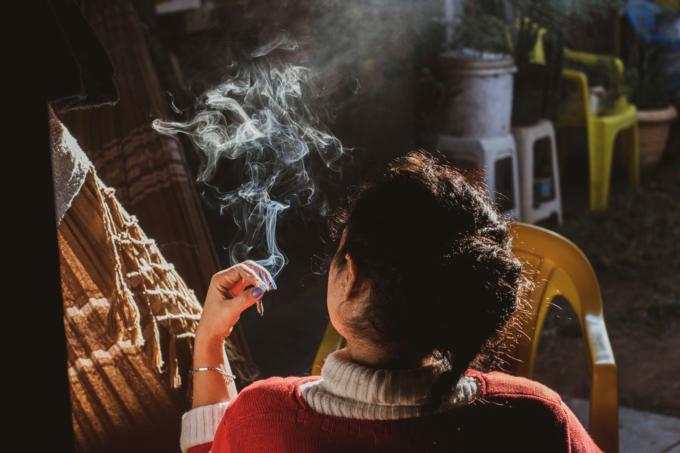
Faith
... there is clear and chilling evidence about the dangerous effects of marijuana, but why haven't we heard it? It's the money!

Ryan
We are all in the midst of a sophisticated campaign to change the minds of Americans and embrace the marijuana culture.
Through relentless lobbying and the support of tax-hungry politicians, Americans' approval of cannabis has risen in recent years.
Like the use of the f-word in casual conversation and pornography, marijuana has slid into acceptability. Promoters have erased marijuana's former stigma with acceptable labels, such as "recreational drug" and "medical marijuana."
Many of our leaders have been leading the charge. A former Republican speaker of the House sold out and is now a major lobbyist for the cannabis industry. A leading Democratic candidate for the presidency, Kamala Harris, has changed her mind and is now supporting the end of the federal ban on marijuana.
Nevertheless, there is clear and chilling evidence about the dangerous effects of marijuana, but why haven't we heard it? It's the money! The stock in cannabis companies is soaring, and politicians are salivating about the tax revenues that are pouring into local coffers from its sales.
The primary wedge argument for the recent relaxation toward marijuana has been its medical usage. The industry's "medical use" claims, however, have been greatly exaggerated.
After an exhaustive review, the National Academy of Medicine found in 2017 that "cannabis use is likely to increase the risk of developing schizophrenia and other psychosis: the higher the use, the greater the risk." And compared with other teenagers, those who smoke marijuana regularly are about three times as likely to develop schizophrenia.
About 15 percent of our fellow citizens used marijuana at least once in 2017, up 10 percent since 2006. However, the number of Americans who use it heavily is soaring. Currently, 8 million are daily users. Police sources are convinced that many of them are on the roads. However, while the test of alcohol, the breathalyzer, has been effective in reducing drinking and driving, there is no reliable test for the sky-high doped driver.
Tracing the effects of marijuana are especially difficult for researchers because its chemical properties are a moving target. Today's weed is several times more powerful and mind-altering than the smokes of the 1970s. Then, the amount of THC, the mind-altering chemical in cannabis responsible for the "high," was less than 2 percent. Through the "miracle of modern chemistry" and capitalism, the marijuana on sale at our local dispensaries routinely contains 20 to 25 percent THC. It's a clear case of more bang for your buck, and therein lies marijuana's increased danger.
Our young are particularly vulnerable to marijuana. Teenage marijuana use is at its highest level in 30 years, and today's teens are more likely to use marijuana than tobacco. The National Institute on Drug Abuse found smokers who heavily used pot in their teens through adulthood showed a significant drop in IQ level -- by eight points -- from average intelligence, to the lowest third of the intelligence range. This may help to explain the continuing decline in American high school students' academic achievement scores.
While our Church has been caught up and preoccupied with the clerical sex abuse scandal, our voice has been missing from the discussion in the public square about this current scourge. One result is the moral dimension of drug use has been lost in a sea of mental health concerns. Nevertheless, the Church has a clear position.
The Catechism of the Catholic Church states, "The use of drugs inflicts very grave damage on health and life. Their use, except on strictly therapeutic grounds, is a grave offense." This teaching is firmly based on the dignity of the human person. The moral theologian, Pia de Solenni, has written, "What guides the Catholic principle is being made in the image and likeness of God and this idea of being a gift of self for others." She continues, "If it's limiting how you're called to live out your life, be in relation with other people and be a gift to other people, then I think there's a moral problem with it."
In its 2001 handbook "Church: Drugs and Drug Addiction," the Pontifical Council for Health Pastoral Care is more specific. "The consumption of the various forms of the cannabis plant causes euphoria, confusion, desire to laugh and drowsiness. Strong doses cause lethargy and upset in the perception of time, visual precision and loss of short-term memory. With high and repeated use, pot can cause palpitation, swelling of blood vessels, bronchial illnesses and psychic dependency." The council stated, "Considering all the facts, it is irresponsible to consider cannabis in a trivial way and to think of it as being 'a soft drug,' that is, one without remarkable effects on the organism."
One way for our Church to reclaim its damaged moral voice would be to respond to our current crisis with a fresh, medically solid and theologically clear teaching. Such a statement could provide wisdom and guidance to the faithful and to a nation that is careening down a dangerous road.
- Kevin and Marilyn Ryan, editors of "Why I'm Still a Catholic," worship at St. Lawrence Church in Brookline, Mass.
Recent articles in the Faith & Family section
-
Scripture Reflection for April 21, 2024, Fourth Sunday of EasterJem Sullivan
-
The new Temple: How Easter changes religionDr. R. Jared Staudt
-
The wonder of Ordinary TimeLucia A. Silecchia
-
Is there still responsibility for past sins after confession?Jenna Marie Cooper
-
Wounds, not scarsJaymie Stuart Wolfe


















